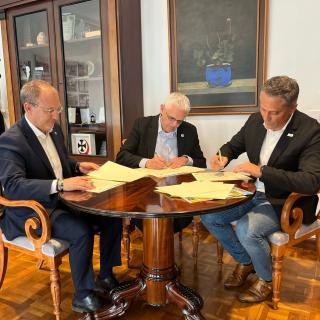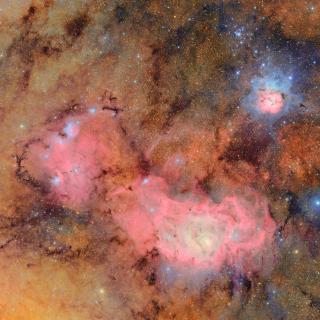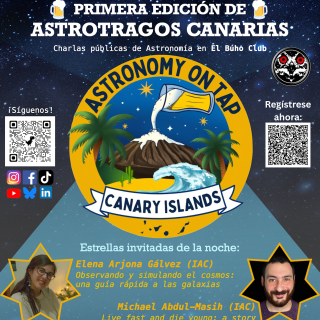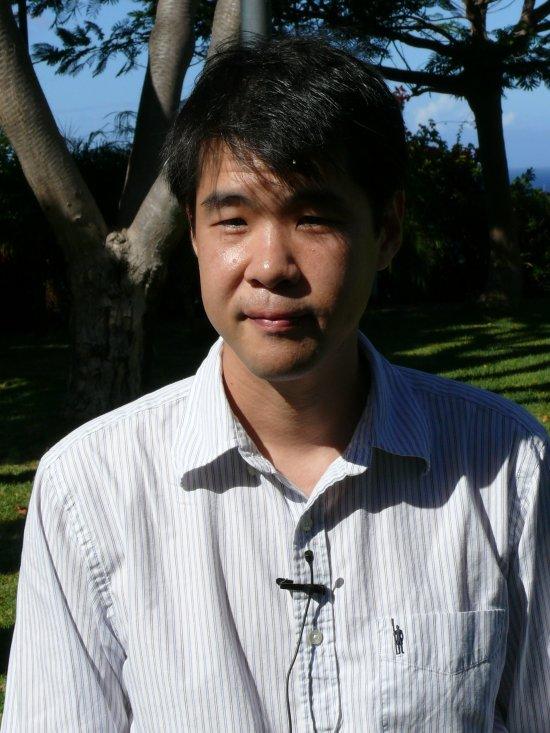It may interest you
-
 The Instituto de Astrofísica de Canarias (IAC) and the Canary, La Palma Reserve of the Biosphere Foundation have signed a document agreeing on actions to be taken in prevention, early warning and rapid response to exotic invading species on the Island of La Palma, a World Biosphere Reserve.Advertised on
The Instituto de Astrofísica de Canarias (IAC) and the Canary, La Palma Reserve of the Biosphere Foundation have signed a document agreeing on actions to be taken in prevention, early warning and rapid response to exotic invading species on the Island of La Palma, a World Biosphere Reserve.Advertised on -
 The Vera C. Rubin Observatory, located in Chile, today released its first images of the universe, known in astronomy as an instrument's “first light”. This event marks the beginning of a project that will revolutionise our understanding of the universe over the next decade. Jointly funded by the US National Science Foundation (NSF) and the US Department of Energy (DOE), the Instituto de Astrofísica de Canarias (IAC) is participating, as part of a consortium of Spanish institutions, in its scientific exploitation and contributing observation time from the Gran Telescopio Canarias (GTC orAdvertised on
The Vera C. Rubin Observatory, located in Chile, today released its first images of the universe, known in astronomy as an instrument's “first light”. This event marks the beginning of a project that will revolutionise our understanding of the universe over the next decade. Jointly funded by the US National Science Foundation (NSF) and the US Department of Energy (DOE), the Instituto de Astrofísica de Canarias (IAC) is participating, as part of a consortium of Spanish institutions, in its scientific exploitation and contributing observation time from the Gran Telescopio Canarias (GTC orAdvertised on -
 The Instituto de Astrofísica de Canarias (IAC) announces the arrival of the Astronomy on Tapinternational talk series in Spain, with its very first edition to be held in Tenerife. This outreach initiative, which was created in the United States and has since expanded worldwide, will now take place in the Canary Islands under the name "Astronomy on Tap – Canary Islands” and the local nickname “AstroTragos,” and is carried out within the framework of the EDUCADO and ExGal-Twin projects at IAC. The debut event will be held at the Búho Club (Calle Catedral, 3, La Laguna, Tenerife) on ThursdayAdvertised on
The Instituto de Astrofísica de Canarias (IAC) announces the arrival of the Astronomy on Tapinternational talk series in Spain, with its very first edition to be held in Tenerife. This outreach initiative, which was created in the United States and has since expanded worldwide, will now take place in the Canary Islands under the name "Astronomy on Tap – Canary Islands” and the local nickname “AstroTragos,” and is carried out within the framework of the EDUCADO and ExGal-Twin projects at IAC. The debut event will be held at the Búho Club (Calle Catedral, 3, La Laguna, Tenerife) on ThursdayAdvertised on
